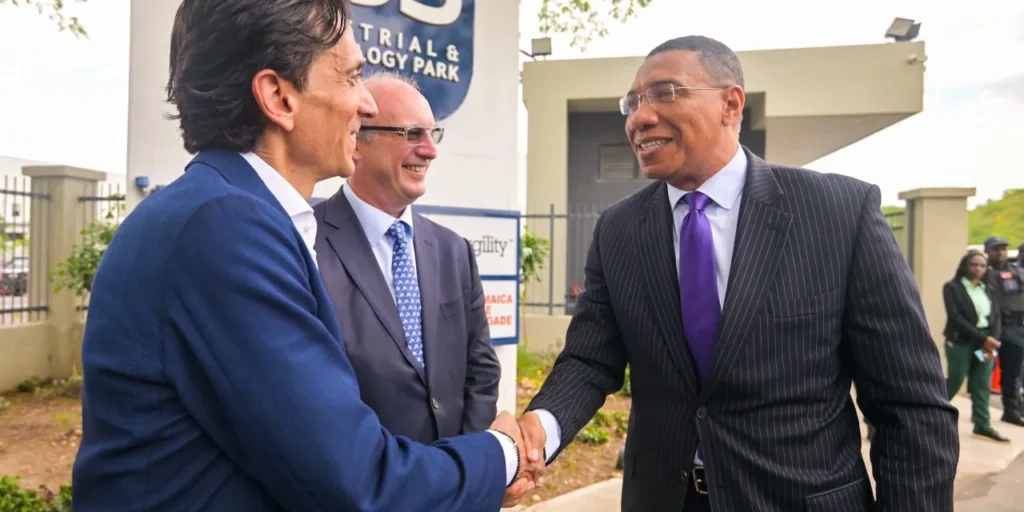Prime Minister Holness Reflects on Jamaica’s Industrial Past, Commends Vision Behind Spanish Town Redevelopment

Prime Minister Dr. the Most Honourable Andrew Holness has commended the vision and determination behind the revitalization of the former Ariguanabo Textile Factory site in Spanish Town, describing it as a meaningful chapter in Jamaica’s national journey to reclaim its industrial ambitions.
Speaking on Tuesday (June 24) at the official opening of the new facility developed by the Musson Group at a cost of over US$50 million, the Prime Minister described the moment as both personal and national, recalling his childhood trips along the train line that once passed the now-redeveloped location.
“I used to take the train after school to visit friends in Linstead, and we would pass by this factory. I always wondered why it was abandoned,” the Prime Minister said. “This factory was once part of a broader vision for Jamaica’s industrial future. Like the Goodyear factory in St. Thomas and the rice mill in Spanish Town, it was a symbol of ambition that eventually fell dormant.”
The Ariguanabo facility was originally established in the 1950s under a government policy focused on protectionism and industrial incentives. Developed in partnership with a Cuban entrepreneur, the factory played a central role in the economy of Spanish Town. Over the decades, however, it suffered from a combination of global competition, shifting economic conditions, and local policy challenges.
By the 1970s and 80s, many of these once-thriving industrial hubs had collapsed. Communities lost not just jobs but also their dreams of industrial advancement. Spanish Town, like many areas across Jamaica, bore the scars of that collapse for generations.
Fast forward to today, the Prime Minister said Jamaica is seeing a different kind of leadership that views dormant assets not as relics but as opportunities.
“As a Government, we made the decision that Jamaica cannot develop on one economic plank. We have done well in services, tourism, and BPOs, but we must now re-establish our manufacturing base. Logistics and manufacturing must play a central role in our national growth,” he said.
The Prime Minister commended the developer, Michael Subratie, P.B. Scott, and the wider Musson Group for their vision.
“This is a US$50 million investment, made possible by a bold entrepreneurial vision that saw potential where others only saw decline,” he noted.
The Government, he emphasized, was proud to support the divestment of the land for this purpose, aligning with its broader strategy of unlocking dormant public assets for sustainable economic use. The Prime Minister also highlighted that the success of such a project was predicated on the strong macroeconomic foundation the Government has built over the last decade.
“None of these developments would be possible without stability,” he said. “Entrepreneurs are responding to a Jamaica that is more stable, more secure, and more economically sound. And that is the result of the careful, deliberate work of Government policy.”
As with the Morant Bay Urban Centre and other national initiatives, the Prime Minister underscored that economic revival is no longer theoretical; it is visible and measurable. The opening of the Spanish Town facility marks another milestone in the ongoing effort to rebuild Jamaica’s productive sector, create jobs, and restore national pride through modern, sustainable development.
“We are reclaiming Jamaica’s industrial identity, not by looking back with nostalgia, but by moving forward with purpose,” the Prime Minister concluded.